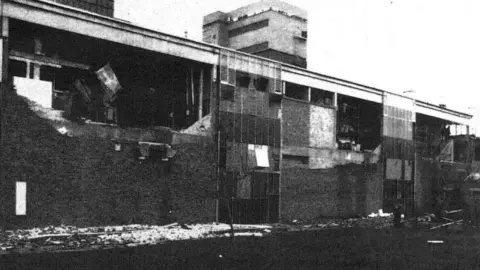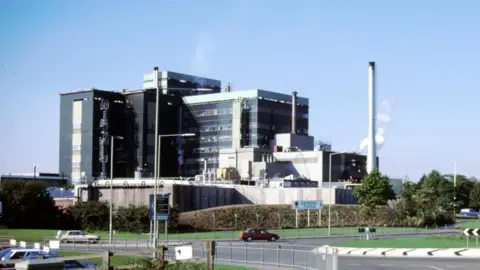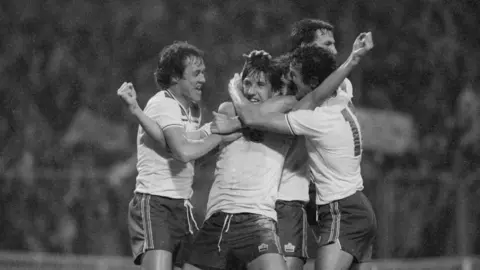How football saved dozens of factory workers' lives
 HMSO
HMSOFootball saves lives, according to many lovers of the beautiful game. At no time has that been more accurate than on a chilly winter night 44 years ago.
On 18 November 1981, disaster struck at the then General Foods (GF) factory in Banbury, Oxfordshire, when corn starch used in the production of its renowned custard powder exploded.
But the site, which is due to close after more than 60 years, was far quieter than normal that night after some employees left early to follow England's make or break World Cup qualifier against Hungary.
The incident left nine employees seriously injured, with many believing it could have been more had it not been for the crucial tie taking place at Wembley.
On that cold November evening, England needed a draw or better to qualify for the 1982 World Cup in Spain, which would be their first for 12 years.
Approaching the end of their shifts, some of those at the factory diverted their gaze away from the plant's tall chimneys and towards the national stadium's iconic twin towers.
 Oxfordshire County Council – Oxfordshire History Centre
Oxfordshire County Council – Oxfordshire History CentreRosemary Barratt was on shift that Wednesday evening and told the BBC: "There was a big football match on on the radio, so we let all the lads go up and listen to it in the changing room."
The match began well, with Ipswich Town centre forward Paul Mariner diverting a Trevor Brooking shot into the back of the Hungarian net after 16 minutes to give Kevin Keegan's England a 1-0 win.
Roughly an hour and a half later, as the crowd of 92,000 fans at Wembley was preparing to celebrate an important England win, a queue had formed at GF's clock-in machines as people prepared to finish their shifts.
It was just before 22:00 GMT "when all of a sudden it started, the booming and banging", said Mrs Barratt.
"We just stood there looking, waiting to clock off, and all of a sudden one of the governors came around," she continued.
"Swearing was forbidden up there but he looked in our cabin where we all were and said 'get the F out of here now'. We didn't know which way to run."
 Getty Images
Getty ImagesA government report from the time said corn powder had escaped from a large silo and created a "dense fog of suspended powder in the vicinity".
Moments after being spotted by an employee "several witnesses saw a flash near the top of the bin and a wall of flame spreading outwards and downwards from the bin top", the report said.
"Descriptions were of a gale force wind with a flame front behind, which flashed through the area," it added.
Mrs Barratt's husband Brian, who also worked at the site but had been off shift at the time of the explosion, said those near the explosion described it as a "fireball" that "went off like dynamite".
The eruption left nine workers with serious burns and caused "substantial damage to the fabric of the building", according to the government's report.
 HMSO
HMSOMrs Barratt said: "There should have been a lot more casualties than there was, thankfully.
"If the football hadn't been on and they hadn't all pushed into the charging rooms [to listen to it] then who knows what could've happened."
England's win that night "wasn't a vintage performance", according to the Guardian but it certainly achieved more than most.
In 90 minutes of football, the team, managed by Ron Greenwood, managed to qualify for the next year's World Cup while also inadvertently saving the lives of a group of factory workers.
Not a bad night at the office.
You can follow BBC Oxfordshire on Facebook, X (Twitter), or Instagram.
